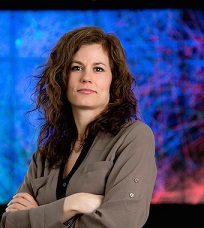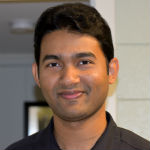Fifth International Workshop on
High Performance Big Graph Data
Management, Analysis, and Mining
December 10, 2018
To be held in conjunction with the
2018 IEEE International Conference on Big Data (IEEE BigData 2018)
The Westin Seattle, Seattle, WA, USA
Workshop Description
Modern Big Data increasingly appears in the form of complex graphs and networks. Examples include the physical Internet, the world wide web, online social networks, phone networks, and biological networks. In addition to their massive sizes, these graphs are dynamic, noisy, and sometimes transient. They also conform to all five Vs (Volume, Velocity, Variety, Value and Veracity) that define Big Data. However, many graph-related problems are computationally difficult, and thus big graph data brings unique challenges, as well as numerous opportunities for researchers, to solve various problems that are significant to our communities.
Big graph problems are currently solved using several complementary paradigms. The most popular approach is perhaps by exploiting parallelism, through specialized algorithms for supercomputers, shared-memory multicore and manycore systems, and heterogeneous CPU-GPU systems. However, since real-world graphs are sparse and highly irregular, there are very few parallel implementations that can actually deliver high performance. The major challenges to scaling and efficiency include irregular data dependencies, poor locality, and high synchronization costs of current approaches. In addition to parallelism, researchers are developing approximation algorithms that use sampling for compressing and summarizing graph data. Streaming algorithms are also being considered for scenarios where the rate of updates is too fast to process the entire graph in a single pass. Further, out-of-core algorithms are necessary for massive graphs that do not fit in the main memory of a typical system. Researchers can use graph-based solutions for solving problems from many diverse disciplines, including routing and transportation, social networks, bioinformatics, computational science, health care, security and intelligence analysis.
This workshop aims to bring together researchers from different paradigms solving big graph problems under a unified platform for sharing their work and exchanging ideas. We are soliciting novel and original research contributions related to big graph data management, analysis, and mining (algorithms, software systems, applications, best practices, performance). Significant work-in-progress papers are also encouraged. Papers can be from any of the following areas, including but not limited to:
- Parallel algorithms for big graph analysis on HPC systems
- Heterogeneous CPU-GPU solutions to solve big graph problems
- Extreme-scale computing for large graph, tensor, and network problems
- Sampling and summarization of large graphs
- Graph algorithms for large-scale scientific computing problems
- Graph clustering, partitioning, and classification methods
- Scalable graph topology measurement: diameter approximation, eigenvalues, triangle and graphlet counting
- Parallel algorithms for computing graph kernels
- Inference on large graph data
- Graph evolution and dynamic graph models
- Graph streams
- Representation Learning for graph data
- Computational methods for visualization of large-scale graphs
- Deep Learning based models for learning on graph data
- Graph databases, novel querying and indexing strategies for RDF data
- Novel applications of big graph problems in bioinformatics, health care, security, and social networks
- New software systems and runtime systems for big graph data mining
Regular paper submissions must be at most 10 pages long, including all figures, tables, and references. They must be formatted according to the style files used by the IEEE BigData 2018 conference proceedings. Additionally, we encourage short paper submissions (at most 6 pages) describing new work in progress.
Past Workshops
BigGraphs 2014
BigGraphs 2015
BigGraphs 2016
BigGraphs 2017
Important Dates
Oct 19, 2018 (11.59 pm Pacific time): Submission deadline
Nov 7, 2018: Notification of paper acceptance to authors
Nov 18, 2018: Camera-ready submissions due
Dec 10, 2018: Workshop date
Keynote
Jennifer Neville
Purdue University
Talk title: Deep Learning for Relational Networks
Abstract: Although deep learning methods have been successfully applied in structured domains comprised of images and natural language, it is difficult to apply the methods directly to graph and network domains due to issues of heterogeneity and long range dependence. In this talk, I will discuss some of our recent work developing neural network methods for complex network domains, including node classification, knowledge graph embeddings, and motif prediction. The key insights include incorporating network dependencies in both the input features and the model architectures, using randomization to transform heterogeneous sets into sequences, and using network-aware data augmentation to offset sparsity. Our experiments on real work social network data shows that our methods produces significant gains compared to other state-of-the-art methods.
Bio: Jennifer Neville is the Miller Family Chair Associate Professor of Computer Science and Statistics at Purdue University. She received her PhD from the University of Massachusetts Amherst in 2006. She is currently an elected member of the AAAI Executive Council. She was PC chair of the 9th ACM International Conference on Web Search and Data in 2016 and is PC chair for the SIAM International Conference on Data Mining in 2019. In 2012, she was awarded an NSF Career Award, in 2008 she was chosen by IEEE as one of "AI's 10 to watch", and in 2007 was selected as a member of the DARPA Computer Science Study Group. Her work, which includes over 100 peer-reviewed publications with more than 5000 citations, focuses on developing data mining and machine learning techniques for complex relational and network domains, including social, information, and physical networks.
Workshop Program
December 10, 2018
8 am -- 12.15 pm
Location: Blakely, third floor, The Westin Seattle, Seattle, WA, USA
20-minute oral presentation of papers (17-minute talk and 3 minutes for Q&A)
8.05 am Opening remarks
Shaikh Arifuzzaman and Nesreen Ahmed
8:15 am Scalability Analysis of Cluster-based Betweenness Computation in Large Weighted Graphs
Andrea Castiello, Gianmarco Fucci, Angelo Furno, and Eugenio Zimeo
8:35 am PatBinQL, a compact, inference-enabled query language dedicated for RDF stream processing
Jeremy Lhez, Badre Belabbess, and Olivier Cure
8:55 am Single-Source Shortest Path Tree For Big Dynamic Graphs
Sara Riazi, Sriram Srinivasan, Sajal K. Das, Sanjukta Bhowmick, and Boyana Norris
9:15 am RECUT: RE-Compressing partially Unordered Trees
Stefan Bottcher and Rita Hartel
9:35 am Mobility Optimization on Cyber Physical System via Multiple Object Tracking and Mathematical Programming
Nozomi Hata, Takashi Nakayama, Akira Tanaka, Takashi Wakamatsu, Akihiro Yoshida, Nariaki Tateiwa, Yuri Nishikawa, Jun Ozawa, and Katsuki Fujisawa
10:00 am Coffee Break
10:20 am Keynote by Prof. Jennifer Neville
11:10 am BiasedWalk: Biased Sampling for Representation Learning on Graphs
Duong Nguyen, Fragkiskos Malliaros
11:30 am Social-Based Classification of Multiple Interactions in Dynamic Attributed Networks
Thiago H. P. Silva, Pedro O. S. Vaz de Melo, Alberto H. F. Laender
11:50 pm Automatic Hierarchical Clustering of Static Call Graphs for Program Comprehension
Gharib Gharibi, Rakan Alanazi, and Yugyung Lee
12:10 pm Closing Remarks
Nesreen Ahmed and Shaikh Arifuzzaman
Program Committee
Mansurul Bhuiyan, Walmart Labs
Jose Cadena, Lawrence Livermore National Laboratory
Vachik Dave, Indiana University Purdue University Indianapolis
Tim La Fond, Lawrence Livermore National Laboratory
Ananda Mondal, Florida International University
Ryan Rossi, Adobe Research
Shaden Smith, Intel Labs
Tianxing Wu, Nanyang Technological University
Baichuan Zhang, Facebook
Workshop Organizers
Nesreen Ahmed
Intel Labs
Santa Clara, CA 95054
Mohammad Al Hasan
Department of Computer and Information Science
Indiana University - Purdue University
Indianapolis, IN 46202
Shaikh Arifuzzaman
Department of Computer Science
The University of New Orleans
New Orleans, LA 70148
Kamesh Madduri
Department of Computer Science and Engineering
The Pennsylvania State University
University Park, PA 16802
Contact
Please send email to one of the workshop organizers.